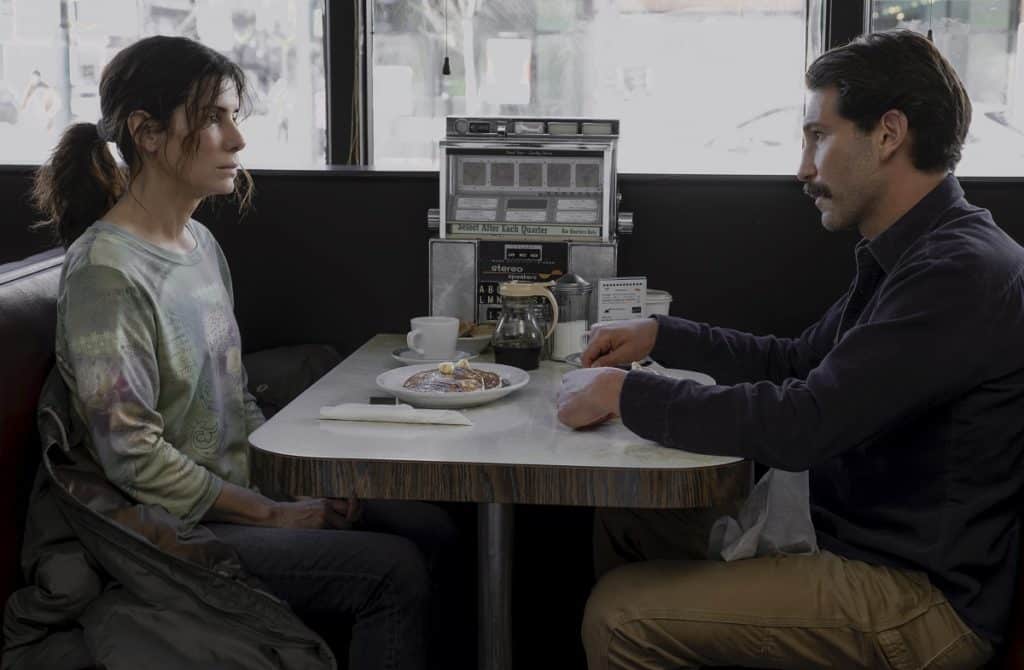Read also:
How to Watch FX Live Without CableHow To Watch AMC Without CableHow to Watch ABC Without CableHow to Watch Paramount Network Without CableThe new Netflix drama comes so close to good but can’t capitalize on its deep cast.
Far more frustrating than a disastrous mess is a film annoyingly close to being good or vastly more interesting. That’s The Unforgivable, a sloppy retelling of the Sally Wainwright’s (Gentleman Jack, Happy Valley) 2009 BBC miniseries.
It attempts to provide an empathetic look at the many failings of our justice system with Sandra Bullock playing hard against type as Ruth Slater, a woman who’s finally walking free after 20 years in prison for a murder conviction. Behind Bullock is a stacked cast with Viola Davis, Vincent D’Onofrio, and Jon Bernthal (The Walking Dead) showing up to elevate the sadly lacking material. All of whom, Bullock included, are putting out solid if not particularly memorable performances.
But it’s hard to make out how the show wants us to feel about any of these people. Ruth’s only mission upon her release is to find her baby sister, Katie. However, we have no idea what kind of relationship the two of them have, if any. The Ingrams (D’Onofrio & Davis), the new residents of Ruth’s former house (and the site of the murder that put Ruth away), aid her in her quest, but the film isn’t interested in making a compelling case as to why.

Instead of creating the empathy that would allow us to become truly invested in Ruth’s plight, The Unforgivable relies primarily on pity. When she moves into her new living situation, the camera follows her walk down the hall of open doors, where inside every room waits a host of horrors. The whole scene seems designed to shock and appall audiences. No visible consideration is paid to getting the audience to feel for the tenants or question the system.
This is at the heart of what’s truly wrong with The Unforgivable—it doesn’t know what it wants to be. On its face, it seems to be a drama indicting the justice system and the way we let those who’ve “paid their debts” languish and suffer unsupported. However, it also tries on the shape of a mystery seemingly not trusting that anything less is dramatic enough. Then, the show still pushes for more. It becomes a legal drama, a family drama, and in a genuinely rage-inducing turn, a thriller-style revenge plot.
It’s exasperating to consider the ways in which The Unforgivable could have been one of the more daring films of 2021.
Without having seen the original miniseries, assigning fault for this hodgepodge collection of tones and themes is impossible. It could be the source material. Alternately, perhaps the difficulty condensing the show into a feature film proved too much for writers Peter Craig, Hillary Seitz, and Courtenay Miles. That said, Wainwright’s usual reliable knack for the characterization is certainly absent. While she’s a well-known expert in crafting complex female characters, her touch is sorely lacking here.
It’s exasperating to consider the ways in which The Unforgivable could have been one of the more daring films of 2021. It could have highlighted the myriad of American justice system failures, a theme ripe for exploration post-“Defund the police”. It could have challenged audiences to have not just sympathy but empathy for a literal cop killer. How bold a statement would it be to explicitly delve into the broken legal and carceral systems through the experiences of a police murderer? What more interesting way to dig into the complex emotions swirling around the movement to abolish the police?
What a dream! But that’s not what we’re getting here. Instead, we have a messy retreading of a dozen plots we’ve seen before, all mushed into one film. The end result? An utterly skippable affair.
The Unforgivable re-enters society on Netflix December 10th and is showing in selective theatres now.